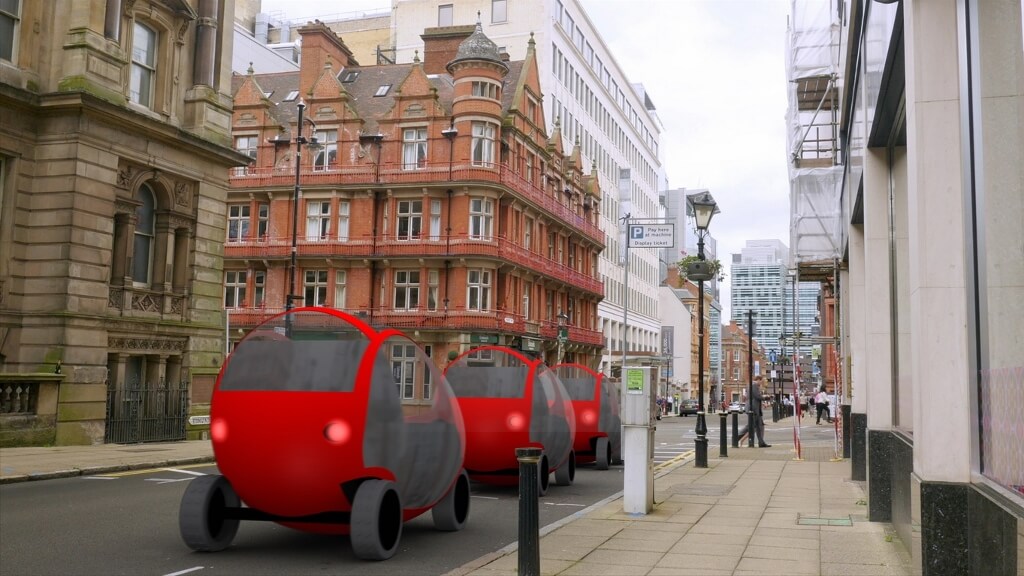Driverless cars are just around the corner, how will insurers adapt to the drive to bring them onto UK roads?
Will Driverless Cars Accelerate Change In The Insurance Market?
Driverless cars are just around the corner, how will insurers adapt to the drive to bring them onto UK roads?

For some time the UK government has been vocal about its desire to be ‘at the forefront’ of self-driving cars, as it creates new jobs, and fuels economic growth estimated to be worth £28 billion within the next 17 years.
But is the insurance industry embracing their ambition and seeing it as an opportunity, or is it being slow to react?
Looking ahead to a driverless car age
Driverless cars are imminent. They won’t be with us overnight but they will be here in stages. In fact there are vehicles already fitted with semi-autonomous features such as self-parking or braking automatically if an object is deemed as a hazard.
Various road trials of driverless cars have already taken place. As part of the UK’s £100m commitment to test projects, the UK is looking to go beyond the original trials in Bristol, Greenwich, Milton Keynes, and Coventry, and gear up for the UK’s first motorway trial.
It’s predicted that more than 12 million fully autonomous vehicles and 18 million partially autonomous vehicles will be sold globally, per year, by 2035. This means a quarter of global car sales will be driverless… and that’s just 18 years away.
And for those about to be born, the likelihood is they will never know of an existence where driverless cars were not the norm.
The acceleration in technology and innovation in the market isn’t reflected in the insurance industry
The insurance industry as a whole does not have the best reputation, with the car insurance market renowned for being slow to evolve, risk adverse, and sceptical of new technologies.
A good example is how the industry adopted black box telematics; this insurance option has been around for a number of years and has a good track record in helping drivers – in particular first-time and those aged below 25 years –improve driving skills and reduce insurance premiums.
Despite it being a proven method there is still plenty of scepticism. Yes, some of the boxes may be faulty from time to time but this is no different to the latest iPhone update experiencing issues.
With the advancement and future adoption of driverless cars, the entire insurance market will need to change.
Earlier this year the UK government proposed in the Vehicle Technology and Aviation Bill that self-driving car insurance would not cover vehicles where the technology has been altered, or has not been updated.
This means the policy owner will only be able to claim compensation if an accident happens when a self-driving car is driving itself with all technology up-to-date and unaltered.
This makes sense but also brings with it ethical questions as well as legalistic ones, both of which will provide a headache for insurance businesses. Society is not used to machines making ethical decisions but the days when they will are fast approaching.
Despite this unknown, it would appear that some of the UK insurance providers are taking driverless cars seriously, with only last year one of them announcing the UK’s (and potentially the world’s) first-ever driverless car insurance policy.
Beneath the PR stunt, due to the lack of substance to the service being offered, it is encouraging that providers are not sitting still and are looking at ways to be innovative.
But will the insurance market need to take a hybrid approach?
For years, car insurance providers have offered three types of insurance cover: Third party, Third party, fire and theft, and Comprehensive. In a world where driverless cars will be considered the norm and could be causing the accidents themselves in years to come, these arrangements will not cut it.
Earlier this year the Telegraph reported that the Department for Transport will be unveiling plans for new, two-in-one insurance products for automated vehicles, which covers both the driver and the car in case their car spins out of control.
Another consideration for insurance providers to factor in is of data-related issues such as malicious interference by hackers and risks of theft.
According to a UK government report released this month the most common road accidents occur due to driver error or reaction.
Such instances are responsible for 71% of accidents on UK roads with the most popular ‘issue’ involving drivers failing to look properly. So imagine how many accidents will be prevented and lives saved in the future when driver error is eliminated due to driverless cars.
Hundreds of estimations already exist concerning how driverless cars will benefit our future: far less traffic congestion, no parking or speeding fines, enabling the elderly and disabled people to get around more easily, and drivers reaping the financial benefits. It all sounds spectacularly positive.
Despite lots of unanswered questions, driverless cars are exciting. Like anything dependent on technology it brings challenges and risks, so it is important the industry shows confidence in having the capabilities to adapt if it chooses to do so.
Insurance companies need to adjust from being an insurer for the mass of drivers, to offering tailored policies against issues involving all eventualities with driverless cars.
Driverless cars are the future and it is more important than ever that the insurance industry embraces the government’s ambition to be at the forefront and demonstrates innovation.
Crispin Moger is CEO of Marmalade.
Thanks for signing up to Minutehack alerts.
Brilliant editorials heading your way soon.
Okay, Thanks!


